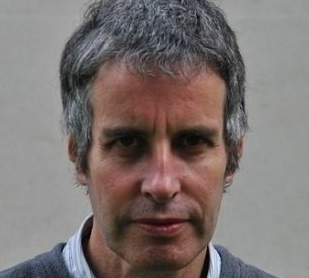[contextly_auto_sidebar id=”Nh63aKCL8o77FEgmNdYA5X6H8szGReEz”]
In 1998 the Good Friday Agreement created a power-sharing government in Northern Ireland and as part of the agreement both the British and Irish governments committed to the early release of prisoners serving sentences in connection with the activities of paramilitary groups, provided that those groups continued to maintain ‘a complete and unequivocal ceasefire’.
- This essay will feature in Justice in a time of moral panic, a new collection of essays published by the Justice Gap
In 2012, Sinn Féin’s deputy leader Martin McGuinness met the Queen in Belfast in his role as Northern Ireland’s Deputy First Minister. The handshake between the Queen and the former IRA commander was considered to be a historic and symbolic stage in the peace process. Similarly in May 2015 Prince Charles shook hands with Sinn Fein leader Gerry Adams, for many years considered to be the IRA’s mouthpiece. The meeting required a great deal of reconciliation, not least because Prince Charles’s great uncle and mentor, Lord Mountbatten, was killed by an IRA bomb in 1979.
The Truth and Reconciliation Commission (TRC) began work in 1996 in South Africa. It was a court-like body assembled after the abolition of apartheid. Witnesses who were identified as victims of gross human rights violations were invited to give statements about their experiences, and some were selected for public hearings. Perpetrators of violence could also give testimony and request amnesty from both civil and criminal prosecution.
In the years of violence and oppression leading up to these events, such agreements seemed inconceivable. Violence just produced more violence and the situations continued to deteriorate, including the respect for the principles of human rights. Each side had its own moral panics – reactive decisions were made in a ‘panic’ aimed at crushing the other side. Reason was not possible because the enemy lacked reason.
The wisdom of these developments lies in the recognition that peace, truth and reconciliation come with a price. People who had lost loved ones, suffered torture and oppression had to watch those responsible effectively pardoned for some of the most horrendous crimes. This was, no doubt, very hard to swallow and some objected strongly but it was, it seems, the price of ultimately establishing a more peaceful, fairer and safer society.
What do these events have to do with moral panics and the criminal justice system?
A moral panic?
There is a parallel of sorts with the current ‘moral panic’ about historical sexual abuse and to some extent with sexual crimes against children generally. One can debate the value of the term ‘moral panic’ but the current climate in this respect is in a sense ‘moral’ – although I will argue an unbalanced and dangerous morality – and the lack of this balance and the lack of caution in responding to the issue has the feel of a ‘panic’ reaction that responds with a reflex rather than a considered weighing of the implications.
At stake in Northern Ireland was the chance to live in peace without fear of sectarian violence, at stake in South Africa was the chance to live without continuing violence and potential adverse reactions to the end of, or the memory of, apartheid.
At stake in the current moral panic about historical sexual abuse accusations is the fundamental and crucial human right, one theoretically founded in International Charters of Human Rights – namely the right not to be subjected to arbitrary arrest, conviction and detention. The effects may not yet be as widespread as in the political examples above but for those subject to the loss of their rights to fair trials and a meaningful standard of proof the results can be just as devastating and the potential implications for future society seriously destructive to the maintenance of basic human rights.
While I focus here on the example of historical sexual abuse accusations the same concerns might equally apply to more current accusations in sexual offences and to the many convictions obtained under the doctrine of joint enterprise, where the standard of proof has been similarly eroded (See House of Commons’ Justice Committee’s Eleventh Report of Session 2010-2012 on Joint Enterprise).
Victims of any miscarriage of justice will of course have appreciated that the traditional notion of proof beyond reasonable doubt has always been something of a myth; however in the current ‘moral panic’ even the pretence of such a principle has been abandoned with hardly a murmur of alarm.
It now only requires an accusation to obtain a conviction (the Criminal Justice and Public Order Act 1994 abolished the need for corroborative evidence in cases based on accusations); the accuser is automatically defined as the ‘victim’, therefore logically automatically defining the accused as the perpetrator, even before any investigation has begun. With historic accusations, that in some cases may date back many decades, mounting any kind of defence is usually impossible. The more accusations that can be gathered the easier the conviction. In 2002 the Home Affairs Select Committee realised this (as discussed in David Rose’s essay) and the reasons why some damaged people make false accusations in a culture of belief, sympathy and compensation can be clearly explained.
What are the outcomes of this ‘moral panic’?
They are truly potentially serious for all of us. No one is safe from an accusation that will destroy their lives, their reputations and potentially their freedom, especially anyone who has ever worked in services for children or adults with severe emotional or experiential problems. Celebrity makes one a perfect target, it is hardly difficult to find a few dozen accusers in a population of 60 million.
We have no problem with accumulating endless accusations against the deceased or now it seems putting people with severe dementia on trial. In June 2015 it was decided that octogenarian Labour peer Lord Janner should face a ‘trial of facts’ – no irony intended apparently – despite a previous decision by the CPS that he could not face trial as he was suffering from severe dementia. Is this the final nail in the coffin of British ‘justice’ when the capability to defend yourself or even understand the proceedings you are subjected to are abandoned?
Prisons are filling up with frail elderly (mostly) men who have been convicted for alleged offences often decades earlier. (Over 60s are now the fastest growing segment of the prison population with 125% increases in the 10 years up to 2014 – according to Nigel Newcomen, the Prisons and Probation Ombudsman in an article in Inside Time, July 2015).
Many will die in prison while their families and friends live in despair. Many of these people may be imprisoned for crimes that never happened because in an atmosphere of hunting down supposed perpetrators, where there is no proof or evidential reliability, injustice is inevitable. This is frankly too dangerous for the future of our society. Not only is it the mark of an inhumane society to imprison elderly people who no longer present a threat to anyone, if in fact they ever did, and who could easily be supervised in the community if this was felt necessary, but it is a danger that could affect anyone.
Amnesty and reconciliation
The idea that reliable evidence is required to prove a case before the state convicts and takes away individual freedoms is as fundamental as the rights to live in safety and free of abuse and prejudice that were needed in Northern Ireland and South Africa.
The current enquiries into historical abuse should be re-designated as truth and reconciliation commissions, and the ‘witch-hunt’ rhetoric of ‘we will convict you however long ago’ should be curtailed in favour of amnesty and reconciliation.
As in Northern Ireland or South Africa there would need to be a trade-off, in this case genuine victims might trade off their need for retribution or even compensation. However through a more constructive process of support and reconciliation they might even achieve greater emotional closure and personal crisis resolution. They could still have their ‘day in court’ but it would be a court of reconciliation rather than retribution.
This may be very hard for many genuine victims as it was for those who suffered in Ireland and South Africa, but for society as a whole it would present dignity and decency rather than random vengeance, it might promote understanding above condemnation and most importantly it would preserve the fundamental human right not to be arbitrarily prosecuted, unfairly tried and imprisoned by the state.
One aspect of the current panic that is moral in the true sense is the wish to protect children from abuse of any kind in the future. Any Commission should look at the best and most reasonable ways of achieving this – condemning elderly people to die in prison for something they may or may not have done decades ago is not one of them; it is hard to see what this achieves apart from potentially random vengeance.
For this reason not only should we try to draw a line under the sad history of these matters through truth and reconciliation, but we should also recognise the need to provide, at least the opportunity, for people afflicted with a socially unacceptable sexuality to obtain help and support in preventing the enactment of those feelings. A few admirable helpline agencies apart (for example, www.stopitnow.org.uk and the Samaritans) there is no help for people who have this problem until they have already offended and then received treatment in prison and supervision in the community. There is only vilification driving people into greater secrecy and society into greater denial of human rights protections.
New Commissions should not only bring Truth and Reconciliation but also a health model of sexual offending, options such as cognitive therapy and voluntary drug treatment should not be ruled out. Progressive ideas such as Circles of Support should be developed and in so doing perhaps we would begin to create an atmosphere which would not only better protect children from abuse but also protect the whole of society from losing vital human rights protections and from social and state injustice based on ill-thought out ‘moral panics’. For more, see The high risk sex offender strategy in England and Wales, Harrison, K; and Circles of support and accountability, Wilson, R. J., McWinnie, A., Picheca, J. E., Prinzo, M., and Cortoni, F, Howard Journal Vol.46 No.1 2007.
I have of course no expectation that such idealistic notions will be given any credence, moral panics are hard to resist or control and understanding is much harder to achieve than condemnation. If however we really want to protect children and their future as adults then we need to think about building on our human rights traditions rather than destroying them; and human rights are most poignant where the most challenging situations arise.








